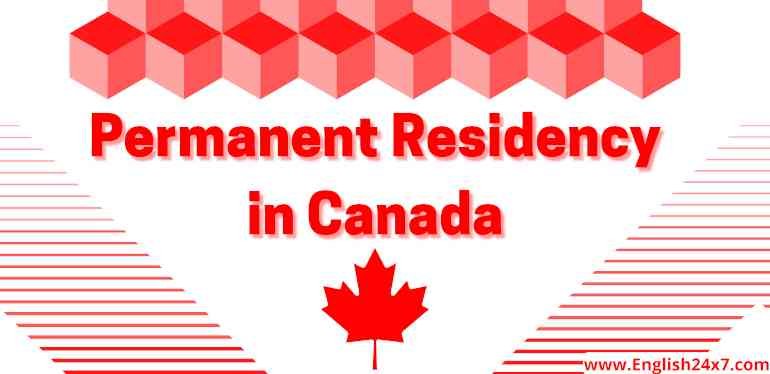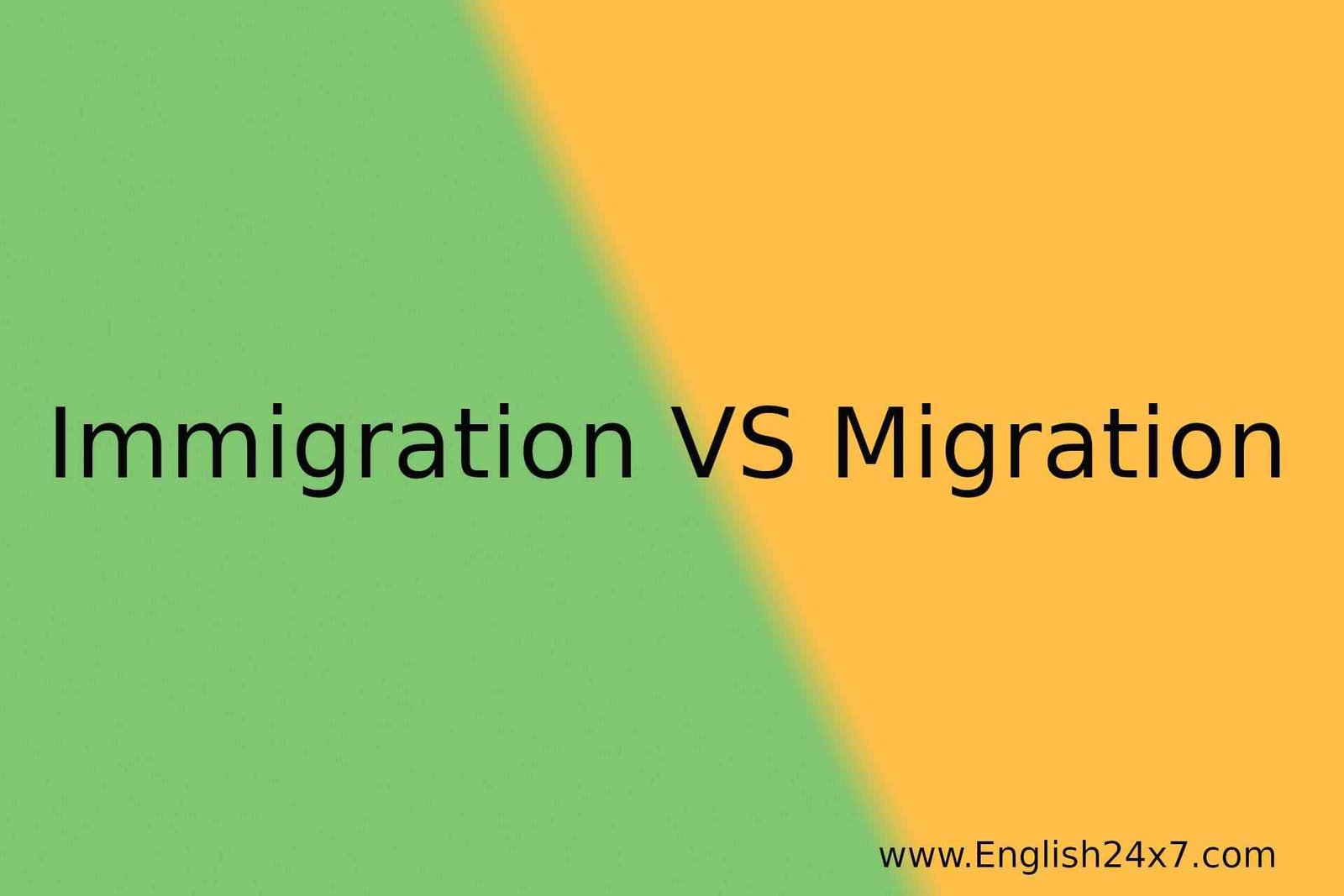
How can I get permanent residency in Canada?
Permanent residency (PR) in Canada is a status granted to someone who isn't a Canadian citizen. The permanent residents are citizens of another country who migrated to Canada. For example, an immigrant living in Canada on Student Visa, Work Visa or tourist Visa is not a Permanent resident of Canada.
To become a permanent resident, applicants must apply to Immigration, Refugees and Citizenship Canada (IRCC), formerly stated as Citizenship and Immigration Canada, under one of many programs offered by IRCC.
Under its various programs, Canada has been offering Permanent Residency PR status to skilled workers for years. The top programs to apply for permanent residency are:
1. Express Entry program: Express entry program is a point-based program called comprehensive ranking system CRS. In CRS, applicants’ points are calculated based on their Education, work experience, age and skills.
Candidates with the highest points receive an Invitation to Apply for PR in Canada under its three programs:
1. Federal Skilled Worker program (FSW)
2. Federal Skilled Trades Program (FST)
3. Canadian Experience class program (CEC)
All the above programs under express entry are point-based. Therefore, to apply under one of these, the applicant must fulfil all the requirements.
2. Provincial Nominee Program (PNP)
There are mainly ten provinces in Canada with three northern territories. Every year Canadian provinces invite skilled immigrants to work and settle in their province. When applicants receive the nomination under PNP, they can apply for a permanent visa. Some of these provinces have more specific requirements than others.
3. Quebec Skilled Worker Visa
Quebec has different programs for candidates who wish to move and settle in Canada. For example, Quebec’s Skilled Worker Program (QSWP) or Quebec Experience Program only allows candidates with high Education and professional background to immigrate to Quebec.
Candidates under QSWP are evaluated based on strict selection criteria. Once you have enough points, you will get a Quebec Selection Certificate (CSQ). With the help of this Certificate, you can apply for permanent residency in Canada. For QSWP, French is the main requirement.
4. Atlantic Immigration Pilot Program
This program is run by four Canadian provinces:
- Nova Scotia
- New Brunswick
- Newfoundland and Labrador
- Prince Edward Island
In this program, the employers from these four provinces select candidates who fulfil all the requirements.
5. Rural and Northern Immigration Pilot (RNIP)
This program is mainly designed for small communities or towns from provinces like Ontario, Manitoba, Saskatchewan, Alberta and British Columbia. After getting a job offer from an employer under RNIP, you can apply for a Permanent Residency in Canada.
6. Family Class
This visa is mainly for people who are already permanent residents or a citizen and want to invite their family members to come live and work in Canada permanently. In addition, you can invite your immediate family members to Live and work in Canada.
Benefits of Canadian PR
Canadian Permanent residency doesn’t mean you can enjoy all the benefits offered by the Canadian Government, but still, there are many benefits of being a permanent resident. These are:
- Free Education
- Healthcare
- Live, study, work and settle anywhere in Canada
- You can enter and go out of Canada whenever you want
- Become eligible for Canadian citizenship
- Sponsorship to family members
- Children who are born in Canada are considered Canadian citizens.
Eligibility for Canadian PR
To apply for Canadian Permanent Residency, the candidate must fulfil the following eligibility requirements:
- Candidates should have good English language proficiency tests like IELTS, CELPIP, and PTE scores approved by the Canadian Government.
- Candidates should have 3-5 years of experience in their relative field. In your hometown and.
- Candidates can also apply under the Provincial Nominee program to increase their FSW (under express entry) scores.
- With a minimum of a year of Canadian experience, one can apply under the Canadian Experience Class.
- Candidates can also apply under a family visa if their spouse is a PR or citizen of Canada.
Once you decide on your category, you can start with your Visa application by collecting all the necessary documents required.
Documents Required for Permanent Residency
The documents required for applying PR under various categories differ. Once you select the category you fallundere, you can start collecting the required documents.
For easy and smooth application processing, all the required documents should be in the desired order and complete. Applicants who fail to fill out the complete application form with the required documents are often rejected.
The documents mainly required are:
1. Passport or travel document
2. Language proficiency tests like (IELTS, CELPIP, PTE etc.) results.
3. Education Credential Assessment report in FSW program.
4. Job offers letter/ Invitation letter from an employer in Canada.
Cost for the PR application:
Different programs require different documents and methods. So the cost of applying to different programs also varies. The most basic costs for a Canadian permanent residency program application from India are:
- English language proficiency tests like IELTS, CELPIP, PTE etc., cost between INR 10,000 - INR 15,000.
- Educational Credential Assessment will cost INR 13,000 - INR 28,000.
- PR fee or RPRF for Primary Applicant: INR 51,596 for Secondary Applicant: INR 51,596 and Child Applicant: INR 13,961.
- Medical fees are between INR 5,000 – INR 11,000.
Processing time for Application
Once you submit your complete documents and application, IRCC will process your application. The average processing time for a Canadian PR is around 5 to 8 months after ITA (Invitation to Apply).
For express entry programs, the time that IRCC takes is up to six months. While Provincial and Territorial Nominee Express Entry programs are taking around 21 months to 25 months in 2022.
Once you receive your Permanent Resident card after the PR process, you can enjoy the benefits given to the Permanent residents of Canada. However, there are some obligations of Permanent residency.
Permanent residents must live physically in Canada for a minimum of 730 days in five years. This also includes if a person is working at another place for their Canadian employer or is accompanying their spouse or the children living with their parents.
A PR card is valid for five years. After Five years, if you haven’t obtained citizen status, you must renew your PR card. For renewal, they will evaluate your five years of living in Canada, and after evaluation, if you are eligible, you will get your renewed PR card.
Under the 2022-2024 immigration program, Canada is set to welcome 432,000 immigrants to live and work in Canada.
Check out our Web Story at https://celpip.biz/web-stories/how-can-i-get-permanent-residency-in-canada/



